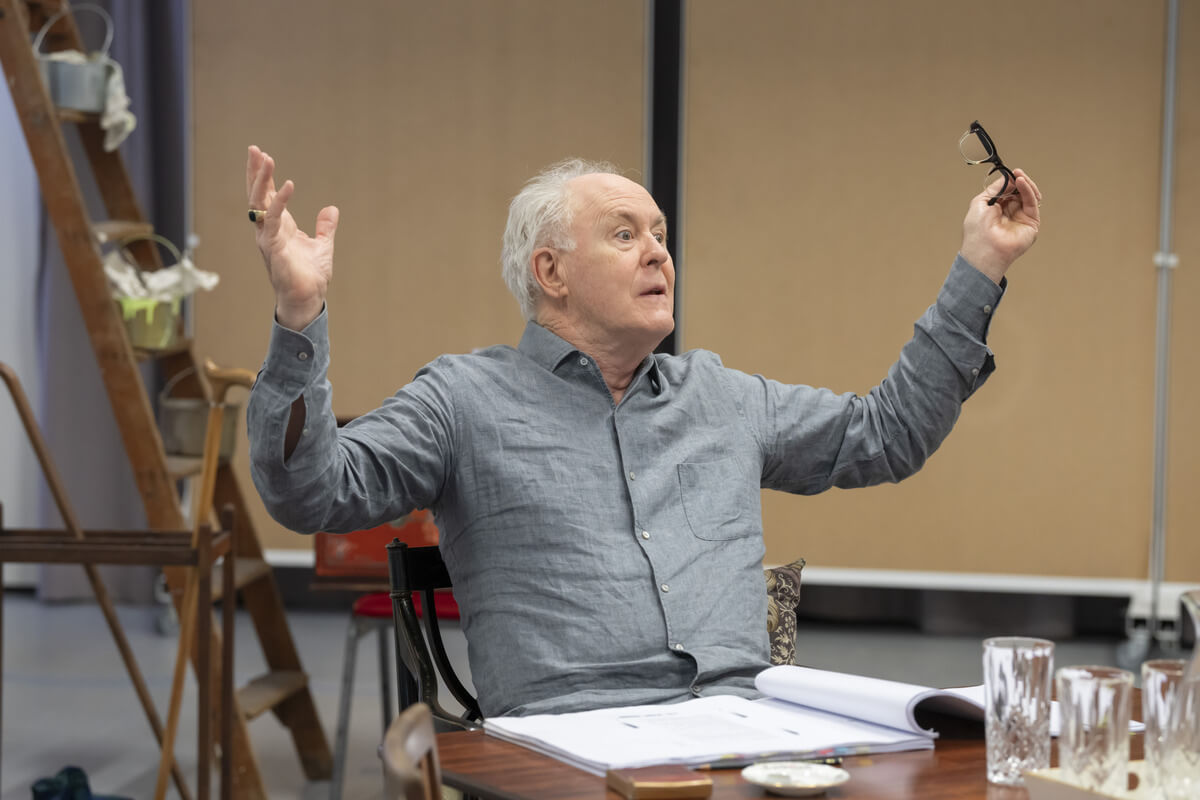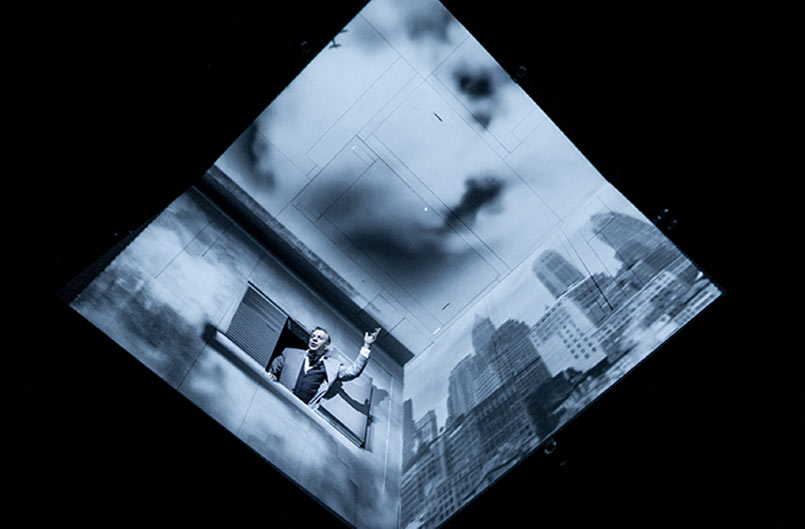This production which premiered at The Theatre Chipping Norton is adapted by Nancy Harris from Tolstoy’s original novella. At the time of its publication, The Kreutzer Sonata was banned in both Russia and America because of what was seen as its radical views on sex and marriage. What is so shocking about the piece today however, is how relevant Tolstoy’s observations of relationships remain.
Set in a train carriage, Hicks plays Pozdnyshev who tells the story of how a piece of Beethoven’s music destroyed his marriage and led him on a downward spiral to a particularly gruesome crime.
With just one actor and a running time of 95 minutes with no interval, the performance requires a certain degree of patience and investment from the audience. Luckily this is rewarded by Hicks’ captivating performance. His Shakespearean pedigree shines through in the way he wrings every last drop of meaning and emotion from the language.
Although the only actor, Hicks is not alone on stage. Alice Pinto on piano and Phillip Granell on violin splice and underscore the text with a score inspired by the Beethoven Sonata that is central to the plot.
Although not as turbulent as Pozdnyshev’s relationship with his wife, John Terry’s direction and Harry Sever’s score aren’t quite a match made in heaven. The musicians are certainly accomplished but at times the music isn’t helpful. Over certain sections of dialogue it becomes a distraction rather than an enhancement. However there are also many occasions when the music adds to the feeling of claustrophobia, of despair, of passion, of drama. Most effective was the the pivotal scene when Pozdnyshev sees his wife and his friend perform together for the first time. As the musicians step into the roles of the adulterous artists, the premonition in Hicks of what is to come is all the more captivating.
For actors, it is the kind of piece one dreams of performing. And although the great majority will never reach the dizzying heights of Hicks’ performance, being able to observe an artist like him so intimately will surely help the dream feel more tangible. It is a masterclass for anyone who has studied the form.
There are other lessons a drama student could take from The Kreutzer Sonata too. Most important of all is that the most engaging and challenging work, the roles you imagine playing in front of thousands are more commonly played in front of hundreds. They are found in the side streets and alleys. There is theatrical life in London outside of the West End and thank god for that.

 Located in the heart of Dalston, the Arcola Theatre is a venue that is more than comfortable in its hipster surroundings. Across two spaces, it boasts a varied programme of emerging and established artists. As actors go, they don’t come more established than Greg Hicks. A longstanding member of the Royal Shakespeare Company and Olivier Nominated for his portrayal of Coriolanus, Hick’s is currently starring in The Kreutzer Sonata in Studio 1 of the Arcola.
Located in the heart of Dalston, the Arcola Theatre is a venue that is more than comfortable in its hipster surroundings. Across two spaces, it boasts a varied programme of emerging and established artists. As actors go, they don’t come more established than Greg Hicks. A longstanding member of the Royal Shakespeare Company and Olivier Nominated for his portrayal of Coriolanus, Hick’s is currently starring in The Kreutzer Sonata in Studio 1 of the Arcola.



 For over 30 years now Robert Lepage has been revolutionising theatre by making pioneering, visually enchanting and breath-taking work. NEEDLES AND OPIUM, which was first premiered in 1991 was reworked by the Canadian theatre maker 3 years ago. Currently touring and making a stop at The Barbican Centre this production is further proof that Rober Lapage’s genius never ceases to amaze.
For over 30 years now Robert Lepage has been revolutionising theatre by making pioneering, visually enchanting and breath-taking work. NEEDLES AND OPIUM, which was first premiered in 1991 was reworked by the Canadian theatre maker 3 years ago. Currently touring and making a stop at The Barbican Centre this production is further proof that Rober Lapage’s genius never ceases to amaze.